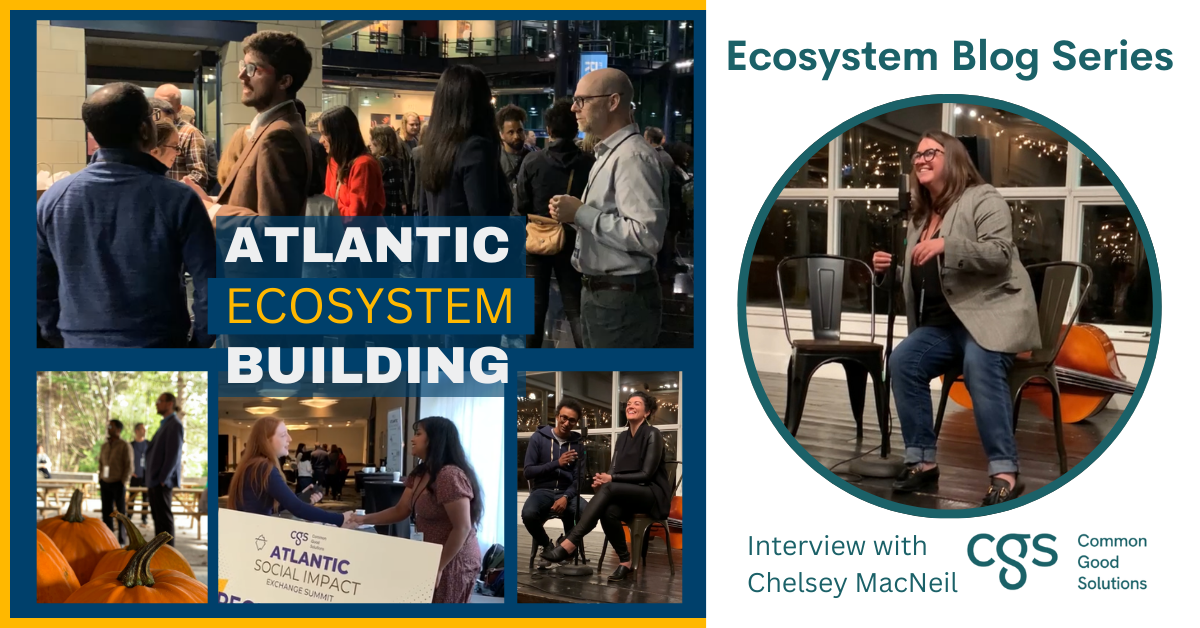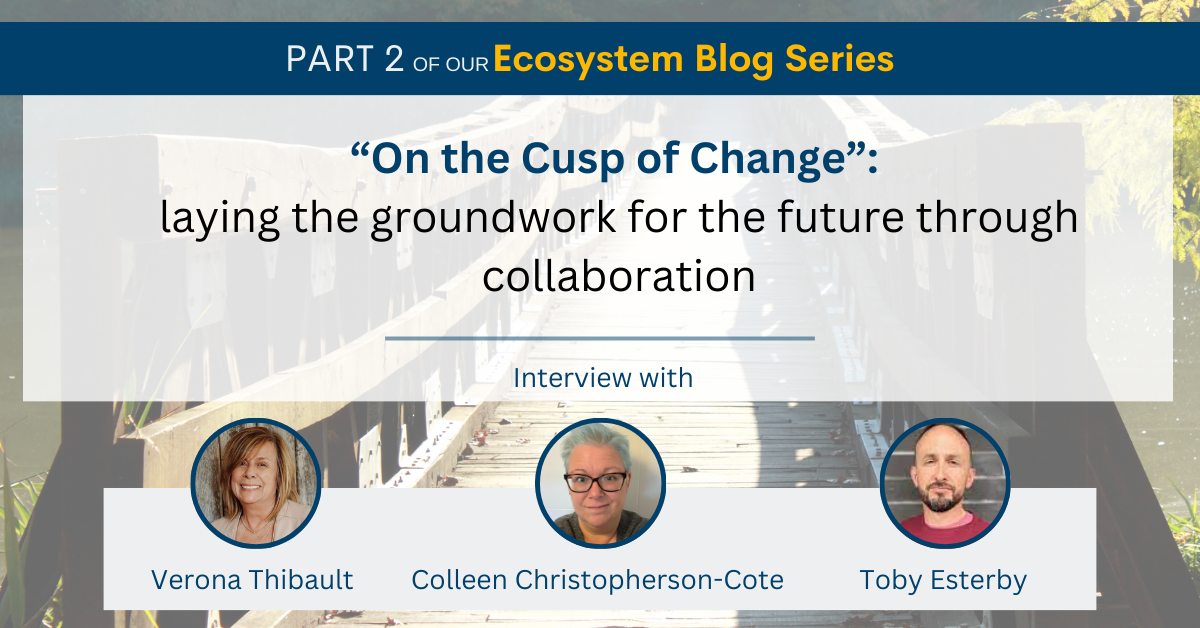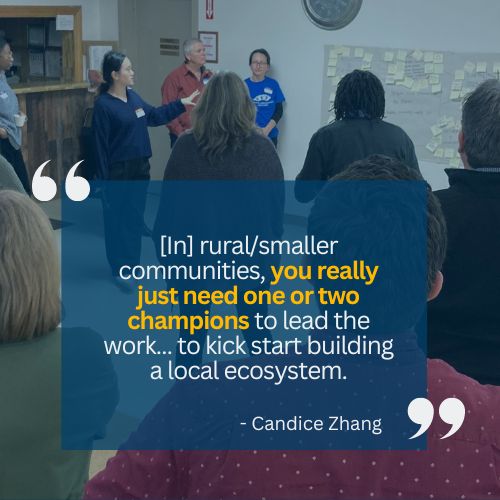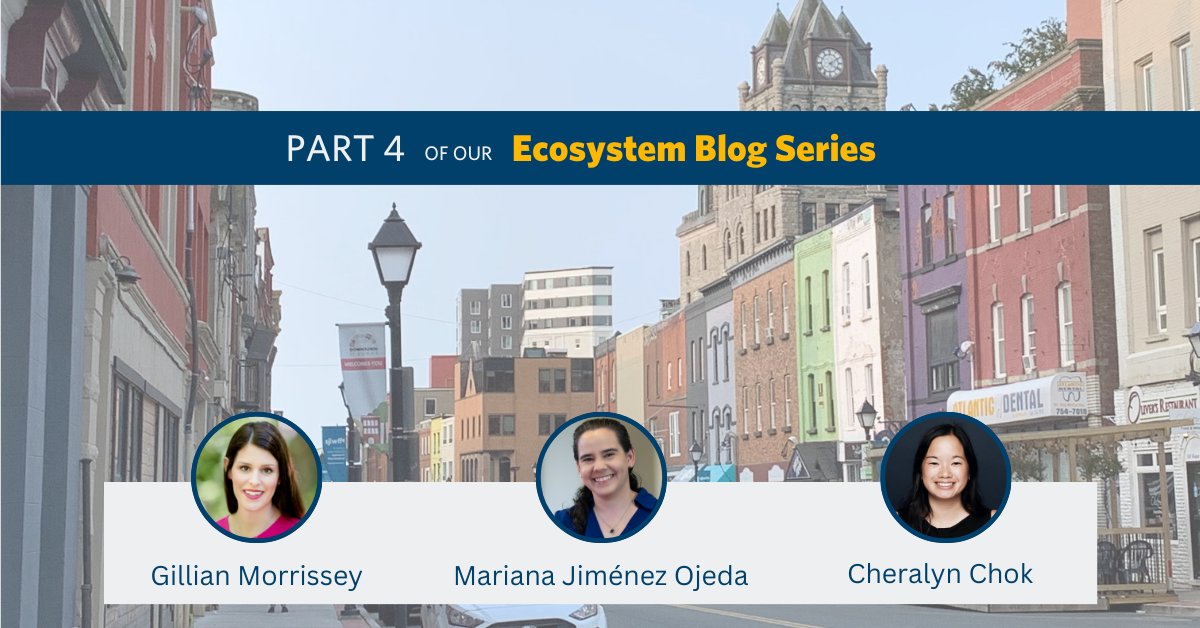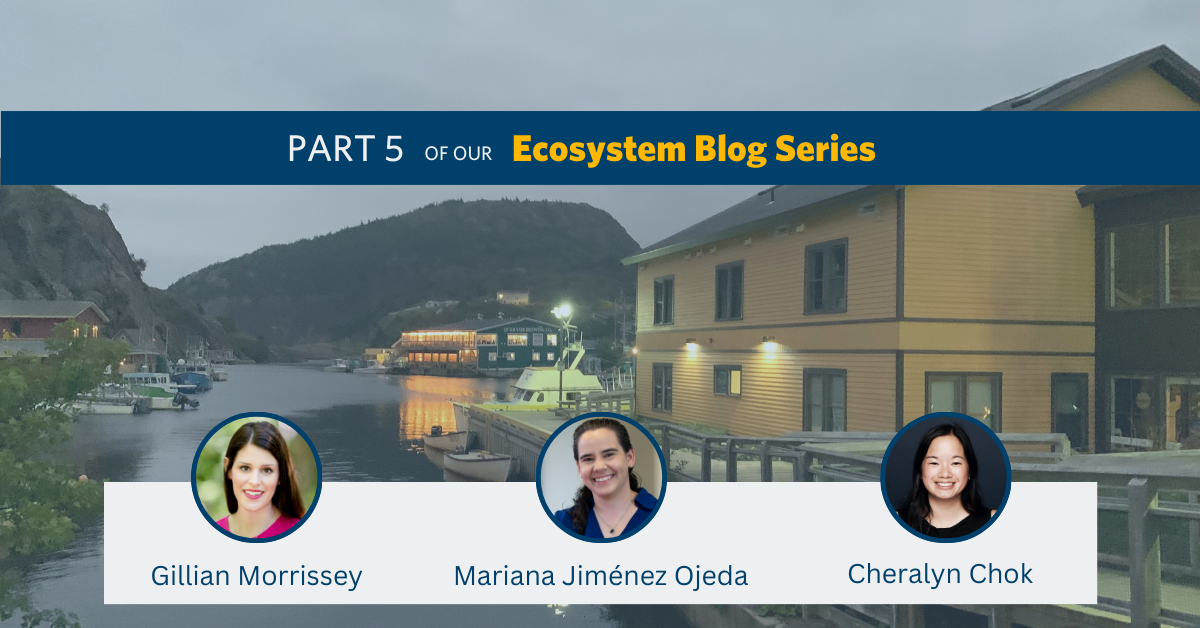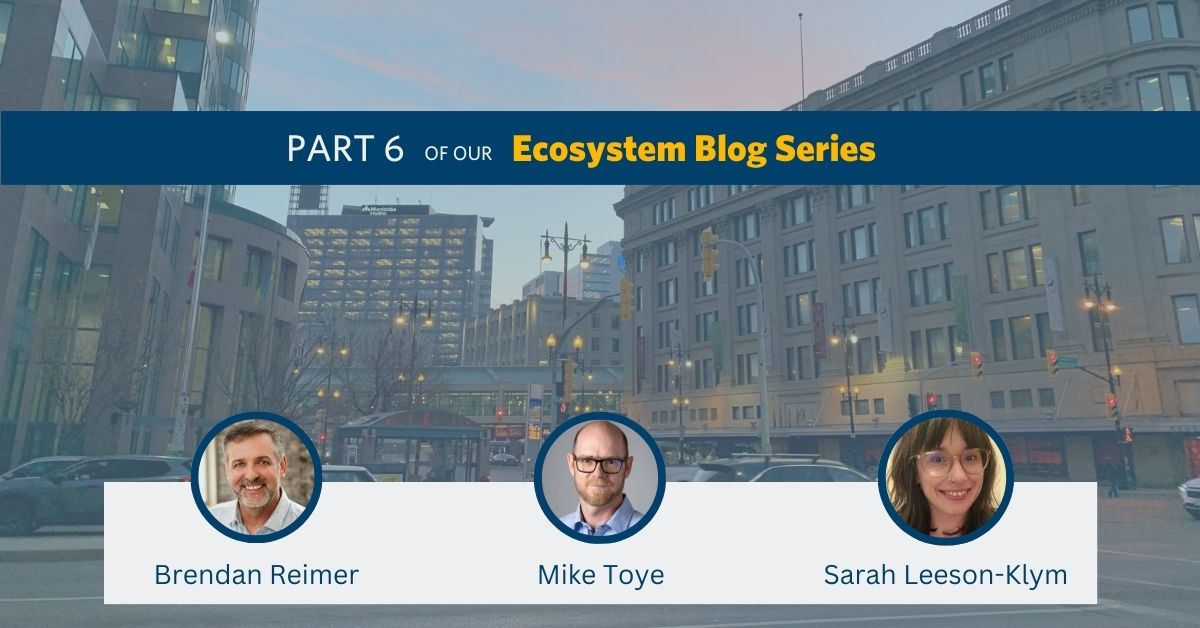The Regional Initiatives Program is an ‘ecosystem building’ initiative supporting projects and initiatives operating at the provincial and pan-provincial scales.
What is ecosystem building? For us, ecosystem building is all the convening, organizing, research, communications, and development work required to connect interrelated areas of action – so that more successful social innovation (SI) and community-led economic development (CED) can happen across the country. It is regional relationship building efforts that generate and sustain connections across sectors to build a network of support for CED.
Picture multiple sectors that are interconnected so well that they form a social web of support and collaboration in a region.
A strong ecosystem is one where social purpose organizations, capacity builders, and everyone else committed to this work of community economic development are so well connected that they know who to connect with when facing each new challenge, or the next person they ask can bridge that connection. It is about strong connections.
Some people have imagined this set of social connections to be similar to how different parts of an environmental ecosystem rely on each other to flourish and grow. It is an increasingly common frame of reference.
Some of the other common descriptions for this type work are building networks of networks, or intersectoral collaboration, backbone support networks.
Our relevant objective in this program is to connect and build the social economy ecosystem at both provincial and pan-Canadian levels.
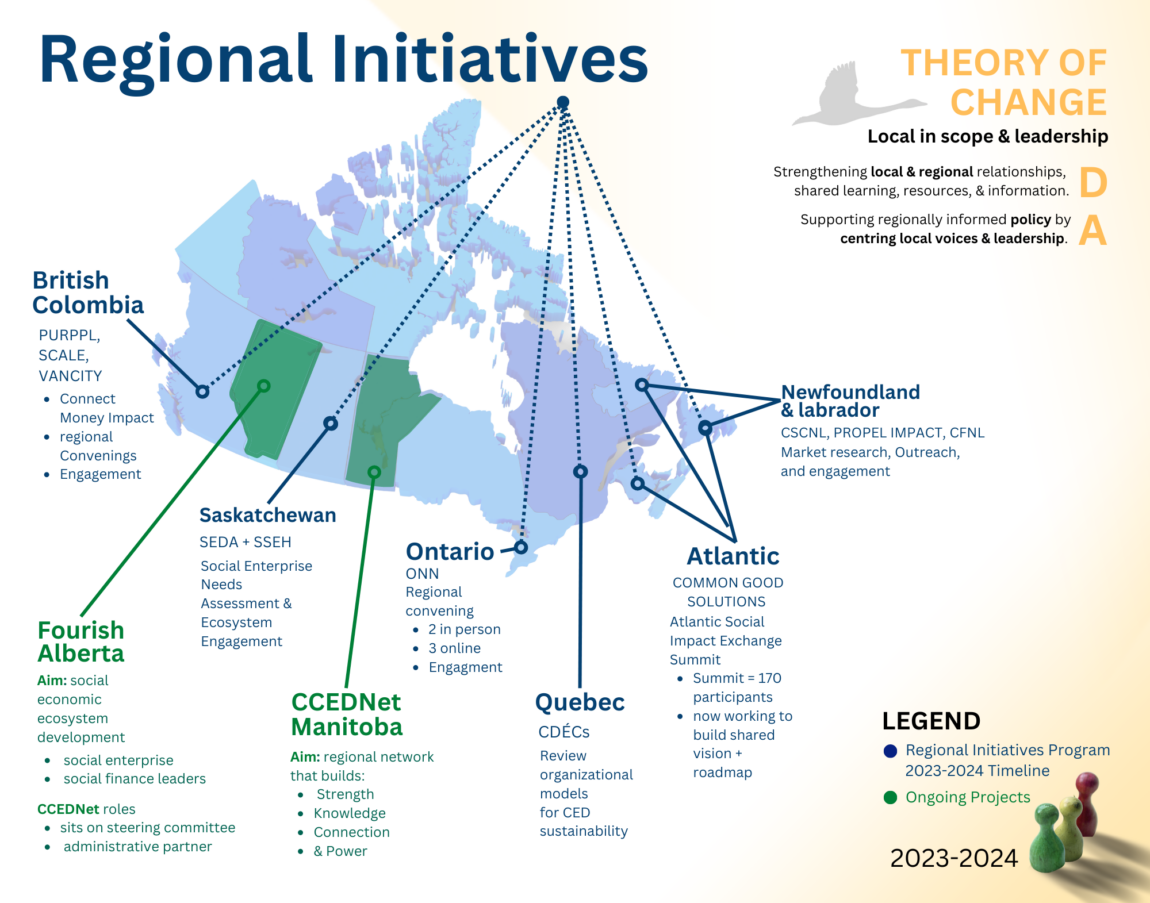

Projects supported by
Regional Initiatives Program
Each region is very distinct and requires unique approaches tailored to their context.
This is why as a national organization, CCEDNet has chosen to support collaborative projects led by regional actors. Many of these projects are spearheaded by multiple organizational leaders jointly collaborating in their respective regions to strengthen regional ecosystems.
British Columbia
Connect Money Impact + Community Convenings
Project Partners: Purppl CCC, SCALE, and Vancity
Saskatchewan
SE Needs Assessment + Engagement.
Project Partners: SEDA and Saskatchewan Social Enterprise Hub
Newfoundland & LB
SE Ecosystem Market Study
Project Partners: MUN CSE, CSCNL, Propel Impact, and the CFNL.
Ecosystem Blog Series
The Many Faces of Ecosystem Building:
The Inclusive Innovation Report
The Inclusive Innovation report from the federal Social Innovation Social Finance Strategy Co-Creation Steering Group provides a helpful section explaining ecosystems and assessing them across Canada. The report says:
“Across Canada, social purpose organizations from different sectors of society are coming together and forming “ecosystems” by pooling their resources, launching collaborative ventures, and sharing skills and knowledge in order to strengthen their communities. Some of these ecosystems involve the use of a particular tool or approach, such as social finance or social enterprise; some focus on improving social and economic outcomes in a particular community, region or province; others bring together social purpose organizations working on the same persistent social or environmental issue across the country. … Just as conventional businesses need certain conditions in place in order to become profitable, such as a favourable regulatory regime and a predictable investment environment, social purpose organizations require the right conditions and supports to stimulate innovation.”
Source: Inclusive Innovation, Section 3. Canada’s social innovation and social finance ecosystems: achievements and challenges
The report goes on to frame ecosystem building as encompassing six interconnected areas for action: skills and capacity; funding and capital; market access; enabling policy and regulatory environment; evidence and knowledge sharing; and awareness and mobilization. We are working with projects that are convening, organizing, researching, or developing communications around these areas of action.
Examples of ecosystems:
Chantier de l’economie sociale
An example of Quebec’s social solidarity economy approach.
CCEDNet-Manitoba
An example of a CED ecosystem approach utilizing a membership network model.
CCEDNet’s Regional Initiatives Strategy
This Regional Initiatives Program falls under CCEDNet’s umbrella Regional Initiatives Strategy Area. The Strategy area comprises a portfolio of activities aimed at building stronger regional systems for CED: including CCEDNet Manitoba and AB SEED. This page focuses on the Program which is aimed at expanding supports for regional ecosystem to more regions across Canada.
Funding Source: This program is funded by the Investment Readiness Program of ESDC, of which CCEDNet is an ecosystem building partner.


